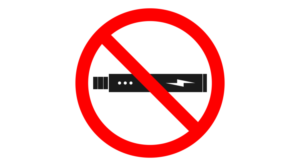Many employers in North Dakota, particularly those with headquarters out of state, often find out about a unique aspect of North Dakota business law once it is too late. Only after an employee quits and starts a competing business does the employer discover that North Dakota law provides non-competition agreements are almost always void as a matter of law.
Having already been burned by an unenforceable non-competition agreement, employers then ask the question of how they can keep proprietary information confidential if they cannot rely on a non-competition agreement. Thankfully, employers still have methods to protect their proprietary information from being used by a former employee, but they need to be vigilant from the start of employment.
North Dakota law provides: “Every contract by which anyone is restrained from exercising a lawful profession, trade, or business of any kind is to that extent void, except:
1. One who sells the goodwill of a business may agree with the buyer to refrain from carrying on a similar business within a specified county, city, or a part of either, so long as the buyer or any person deriving title to the goodwill from the buyer carries on a like business therein.
2. Partners, upon or in anticipation of dissolution of the partnership, may agree that all or any number of them will not carry on a similar business within the same city where the partnership business has been transacted, or within a specified part thereof.
See N.D.C.C. § 9-08-06.
The North Dakota Supreme Court has explained the statute intends to protect “the right of the public’s access to the services offered by the employee.” Warner and Co. v. Solberg, 2001 ND 156, ¶ 14, 634 N.W.2d 65, 70. With this purpose in mind, the North Dakota Supreme Court has held that an employment contract that prohibits an employee from soliciting the employer’s clients or customers after the termination of the employment is also void as a matter of law. Id. at ¶ 24.
While N.D.C.C. § 9-08-06 does provide two exceptions to the general prohibition against non-competition agreements, most employers seeking to protect their proprietary information are not dealing with the sale of goodwill, nor the actual or anticipated dissolution of a partnership. As a result, the exceptions usually provide little relief to employers. An out-of-state employer can establish a North Dakota limited liability partnership (LLP) as a subsidiary, whereby the employees are made partners with small amounts of equity in the LLP, and the employment thereby potentially qualifies for the exception under N.D.C.C. § 9-08-06(2). However, the use of a LLP creates a whole new set of problems related to internal governance that most employers would rather avoid. Thankfully, employers have an easier option that should provide close to the same level of assurance against future competition. Best of all, this route was recently discussed by the North Dakota Supreme Court.
In SolarBee, Inc. v. Walker, 2013 ND 110, 833 N.W.2d 422, the Supreme Court reviewed a district court decision finding two employees had breached their employment contracts and proprietary information contracts. The proprietary information contract provided broad definitions for “Confidential Information,” “Intellectual Property,” “Work Product,” “Trade Secrets,” and “Work.” The contract then provided equally broad provisions whereby the employees agreed to keep confidential all “Confidential Information, Work Product, and Trade Secrets” obtained through the employment. The proprietary information contract further provided the employees recognized that all Intellectual Property derived during the course and scope of their employment was owned by the employer, and the employees waived any claim to the same. Finally, the proprietary information contract provided that its terms survived the termination of any employment relationship for a period of two years.
The employment contract required the employees to return a long list of the employer’s business materials immediately upon termination of the employment. The employment contract finally provided:
The salesperson shall not ever, during employment or for five years following termination, interfere with the company’s customers in any manner, or use or disclose to any person the company’s customers, prospects, products, trade or business secrets, sales or science technologies, sales or other methods, or systems.
The district court held a bench trial and found the employees had violated the relevant portions of the employment and proprietary information contracts by creating and operating a side business in the same general field as the employer, and dealing with the employer’s customers as part of such business. The employees’ conduct in this case occurred while they were still employed by the employer, but the contracts enforced by the district court applied for two years after the end of employment. The North Dakota Supreme Court affirmed the district court’s findings regarding the breaches of contract.
Importantly, while neither the district court nor Supreme Court specifically upheld a non-competition agreement in SolarBee, Inc., the scope of the employment and proprietary information contracts provide guidance to other employers in this state. Employers can use these contracts as a guide when trying to prevent employees from gaining valuable information through their employment, only to turn around and use that information to operate a competing business.
The employer’s best of line of defense is to prepare an employment contract that provides protections regarding the confidentiality and ownership of all of the employer’s proprietary information. This contract should be executed at the outset of the employment relationship, so there can be no questions about whether the employee received consideration in exchange for entering into the contract. The employment contract should contain both broad definitions of confidential information, trade secrets, and the like, but also as many specific examples of such information as possible. The contract should specifically identify the information the employer considers proprietary to avoid the employee being able to argue over the scope of the protection provided by the agreement. Finally, the employment contract itself should contain a confidentiality clause in order to protect the employer’s identification of its proprietary information, as well as a liquidate damages clause related to any breach of confidentiality over the agreement.
To be clear, this approach works best for companies that actually produce or design products, not companies that merely sell products or services provided by third-parties, such as an independent insurance agent. In those situations, the employer’s primary asset is its relationship with customers, and there is conflicting case law regarding when the identity of customers constitute an employer’s trade secrets or protected proprietary information. In Warner and Co. v. Solberg, 2001 ND 156, 634 N.W.2d 65, the North Dakota Supreme Court discussed a series of cases finding customer lists and contact information can constitute a “trade secret” under the Uniform Trade Secret Act.
However, the Eighth Circuit Court of Appeals has affirmed a district court’s denial of a motion for a preliminary injunction in a case where the employer alleged the employee wrongfully misappropriated a trade secret in the form of a customer list for the benefit of a competing business. See CDI Energy Services, Inc. v. West River Pumps, Inc., 567 F.3d 398 (8th Cir. 2009). The Eighth Circuit concluded the employer had failed to establish a likelihood of success on the merits of its claim that the former employees had misappropriated trade secrets in the form of customer lists, because “the potential customers . . . are a small collection of easily identifiable, locally operating oil field companies.” Id. at 402.
Though no clear line exists delineating when customers do and do not constitute trade secrets, North Dakota employers should be concerned by the Eighth Circuit’s language that that a business with a relatively small, targeted number of customers in a limited geographic cannot claim the identity of such customers constitute a trade secret. For employers who consider customers one of their most important assets, the employment contract could contain an acknowledgement that the employee did not know the identity of the employer’s customers prior to accepting such employment, which would bolster the employer’s claim that such customers constitute a trade secret or the employer’s proprietary information.

Graduating from the University of Minnesota Law School, Mr. Foss clerked for Justice Carol Kapsner at the North Dakota Supreme Court before joining O’Keeffe O’Brien Lyson Foss Law. He now focuses on commercial litigation while also working within all areas of business litigation.









Comments for this article are closed.